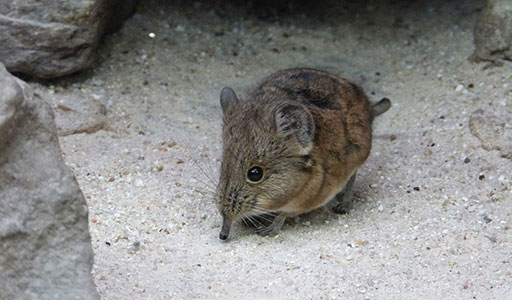Shrew Removal
Do you need to get rid of shrews? We can help!

Shrew Removal Strategies
If you have come across shrew droppings, small underground tunnels, tracks, or foul-smelling odors, it may be time to call in a team of experts at Trutech. Our licensed specialists have the knowledge and tools to solve all of your shrew problems, no matter how big or small. Creating your own traps poses a danger to both you and the animals you are trying to catch. Call in the team of experts at Trutech for shrew removal and shrew control services that are an effective and permanent solution.
In fact, hiring the experts at Trutech will solve your problem in an environmentally sensitive way while ensuring that the spread of diseases from these rodents is prohibited. Trust Trutech to take care of all of your shrew removal needs in the most efficient and thorough way possible. But don’t wait until shrews have invaded your home or destroyed your yard to call in a professional team- Call Trutech’s team of experts for all of your shrew control needs today!
Shrew Problem

Signs a Shrew is on Your Property
Shrews are small rodents with pointed snouts and long, hairless tails. Shrews’ diet consists of small insects, nuts, and vegetation. When shrews are in danger of being eaten, they secrete foul-smelling odors from their glands, likely scaring away any potential predators. Some shrews are nocturnal and some hibernate during the winter months, depending on their environment.

Dangers of Shrew Infestation
Since they eat other pest species like spiders and beetles, shrews are capable of benefiting people. However, in areas where populations grow large enough, the tiny mammals also cause destruction. Their consumption of seeds occasionally affects overall tree populations. Some species of shrews target bees as food sources and devastate pollination efforts. Shrews give off a pungent musky odor that’s especially offensive when they gather in large numbers, as well.
Additionally, shrew populations may break into homes to feed on stores of food. Since they eat approximately three times their weight in food per day, losses tend to be significant. Furthermore, their urine and feces contaminate the products they feed on. Finally, some shrews are venomous. Though their venom is primarily used to paralyze prey, shrews will bite humans if they are mishandled or feel threatened. Thankfully, bites do not usually require medical attention and occur only rarely.
Humane Shrew Removal & Control Strategies

Entry into property
Since shrews are so plentiful throughout North America, they consistently come into contact with humans, which often generates the need for shrew control. Their diets often lead them into private gardens and lawns. Though shrews do not traditionally invade homes, preferring to nest inside the ground, they will retreat into barns, basements, and sheds in areas with harsh, cold winters.

Trapping & Removal
Though shrew bites are rare, they are most often the result of mishandling. To avoid injury, untrained individuals should never attempt to capture problematic shrews. Instead, contact Trutech wildlife specialists to remove the pests in such a way that keeps both the involved people and animals safe.

Prevention & Exclusion
Shrew control begins with rodent-proofing methods of exclusion. Helpful actions to take include erecting fences around vegetable gardens, sealing cracks in building foundations with caulk, replacing broken window and door screens, keeping food in tightly sealed storage bins, fitting indoor and outdoor trash bins with lids, and maintaining lawns and ornamental vegetation.
Frequently Asked Questions
Though they are not common indoor pests, shrews do cause serious problems for homeowners when they decide to infiltrate homes. Typically, cold weather or consistent precipitation drives them inside, though homes with insect infestations are attractive to shrews because they provide the pests with plenty of food.
Shrews in the house gain entry by way of tiny gaps, cracks, or holes in building foundations or siding. They may also enter through cracked windows, doors, and even garage door gaskets. Occasionally, the pests are carried in by pets.
Shrews are small pests that construct elaborate underground tunnel systems. They primarily nest in habitats with plenty of groundcover, like woodlands, weedy and cultivated fields, private gardens, and residential lawns.
Private properties are especially attractive to shrews because they also offer plenty of the pests’ favorite foods, such as earthworms, spiders, beetles, plant matter, mice, and birds. They enjoy various types of seeds, as well, and frequently raid birdfeeders.


